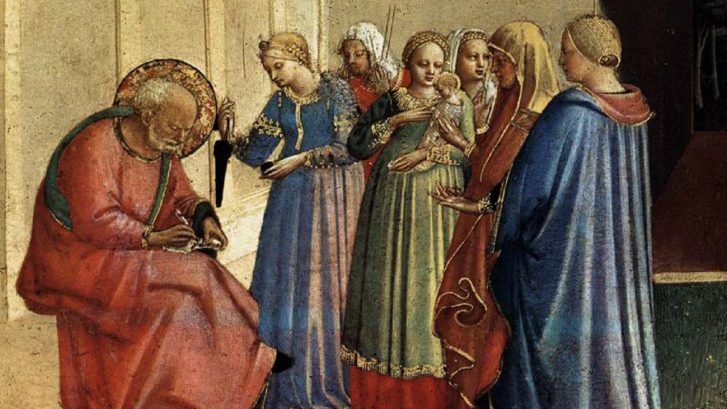Today is the Feast of John the Baptist. When we hear his name, a grim picture comes to mind. He was not the Messiah. This he made clear to the crowds who thought he might be. His whole life was spent going before Jesus to prepare His way. His message sometimes sounded as harsh as his garb and diet: repent!
What we fail to realize is that he is not preaching to the bad people. We read that those coming to him were the Pharisees, Sadducees, and religious leaders. Good people, faithful people. They obeyed the law, they went to the temple. John is castigating the sins of the good, not the horrors of the bad.
There is a danger these days when we look at the news. We often see or hear things that can boggle the mind. We can be stunned by the violence, the blatant racism, and bigotry. How could anyone commit these acts of violence, inflict this much pain on another human, disrupt families? How could anyone sell heroin to school children, or beat up an elderly woman for a mere few dollars? We are all numbed by this sort of thing, it is beyond our comprehension.
But there is a second way these horrors affect us and it is far more subtle, far more spiritually subtle. The effect of such horrors is that they tend to justify us. By this I mean, we say, well, for all the little mistakes I make, for all the tiny sins I commit, I am not as bad as those people. And this is true, and to this extent, we come off fairly well. And that is when someone like John the Baptist comes along
He won’t let us settle for such complacency. There is too much at stake when good people are content and believe that they are good because they are not bad. What disturbs him is when good people are just content with the minimum. He challenges us and demonstrates that you are the light of the world, you are the salt of the earth. We are coaxed and shouted at by John, but only so that we will keep and should keep turning towards Jesus.
John was the herald, but Jesus is the message. John was the voice, but Jesus is the word. John offered testimony, but Jesus is the truth. John spoke of promise, but Jesus is the fulfillment of every promise. John preached repentance, but Jesus brought forgiveness.
What would John say to us today? What would he preach to the richest nation in the world? He would probably ask, why is it that some of our children go to bed hungry?
Why is it that in this country that flows with milk and honey, there are children who lack medical care, or an education? He would want to know why it is that every 26 minutes a child is injured or killed by a gun. And the rate of teenage suicides has tripled in 30 years.
We are challenged by John precisely because we are the good, people from whom more should be expected, more demanded. And he will not allow us to hide behind those comparisons that water down our call to a deeper union with Christ. He asks us to ask ourselves, where I work, where I spend my day, Is that place different, better, more human and more Christian, more for others because I am there?
John was speaking of Christ when he said, “He must increase, but I must decrease.” As we face the many challenges of today’s living, that might be a good mantra or motto to adopt. When you receive Christ today, simply repeat the words of John. Speak to Christ and say, Lord, You must increase, but I must decrease. Help me see the things I need to see. Help me change the things I need to change. In the words of St. Francis, “Preach the Gospel always. Only when necessary, use words.”


